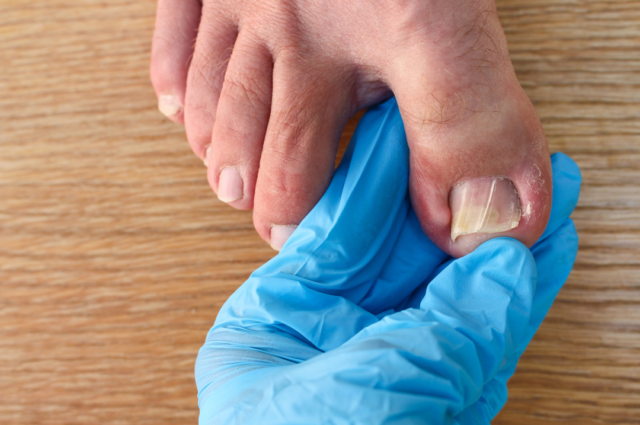
If you or any of your family members have diabetes, you’ll likely know that it’s very important to look after your feet. What many people may not be so familiar with, is the exact reason why it’s so important and how diabetes affects the feet. Here are the two main ways diabetes poses a significant risk to your feet and why you need to look after them!
Diabetes affects your ability to feel
Because of the way that diabetes damages the nerves, your sensation progressively worsens over time. There are many changes to sensation that can occur with diabetes. The more common changes can include:
- Numbness
- Tingling
- Pins and needles
While these are the less dangerous of the changes, they still hinder your overall ability to feet and you may find that you can no longer feel very light things brushing over the skin of your feet.
Your nerves may also start sending mixed messages. They may interpret hot as cold, sharp and dull, and vice versa. This is more dangerous, and can lead to burns or breaks in the skin. Any breaks (openings) in the skin leave it vulnerable to infection, and should be avoided at all measures.
Perhaps the worst change is losing the ability to feel altogether. This doesn’t occur as a numbness, but as an unnoticeable absence in sensation where there is no numbness or odd sensation but just nothing. If you don’t feel that anything is wrong or off, then the body just perceives that everything is normal, when it very much isn’t. Losing the ability to feel means you won’t detect when you’ve stood on something sharp that has broken the skin. It can then remain lodged in the foot and remain vulnerable to infection, which is likely when walking around on the ground.
Changes in your circulation
Diabetes also causes damage to the vessels and impairs the blood flow to the feet. The feet are already the area furthest away from the heart, so anything that impairs the blood flow makes can have a significant impact on the feet. Your feet may often be cold, appear pale, the skin may become dry and the nails, brittle.
Importantly, a poorer blood supply to the feet also means a means a longer healing time for any cuts and breaks in the skin. This, when paired with an increased likelihood for cuts and wounds from the effects on sensation, is a very dangerous combination. It poses a great risk of infection and secondary infection as open wounds take longer than normal to close. Infections are harder to fight, and persist for longer. This places the feet at a great risk for ulceration, and at its worst, amputation. Diabetes is currently the leading cause of lower limb amputation, other than traumatic injuries.
If you’re concerned about your feet and diabetes, the best thing you can do is come in and see our expert team here at Perform Podiatry. Because the effect of diabetes on your feet progressively worsen, we conduct a comprehensive diabetes assessment to tell you the exact risks to your feet based on your circulation and sensation findings. We’ll teach you how to best care for your feet, avoid injury, and everything you should be looking out for. We also liaise with your GP with your permission, to keep them updated on your feet, so you get the best care.
Give us a call on 09 523 2333

 If you or any of your family members have diabetes, you’ll likely know that it’s very important to look after your feet. What many people may not be so familiar with, is the exact reason why it’s so important and how diabetes affects the feet. Here are the two main ways diabetes poses a significant risk to your feet and why you need to look after them!
Diabetes affects your ability to feel
Because of the way that diabetes damages the nerves, your sensation progressively worsens over time. There are many changes to sensation that can occur with diabetes. The more common changes can include:
If you or any of your family members have diabetes, you’ll likely know that it’s very important to look after your feet. What many people may not be so familiar with, is the exact reason why it’s so important and how diabetes affects the feet. Here are the two main ways diabetes poses a significant risk to your feet and why you need to look after them!
Diabetes affects your ability to feel
Because of the way that diabetes damages the nerves, your sensation progressively worsens over time. There are many changes to sensation that can occur with diabetes. The more common changes can include: